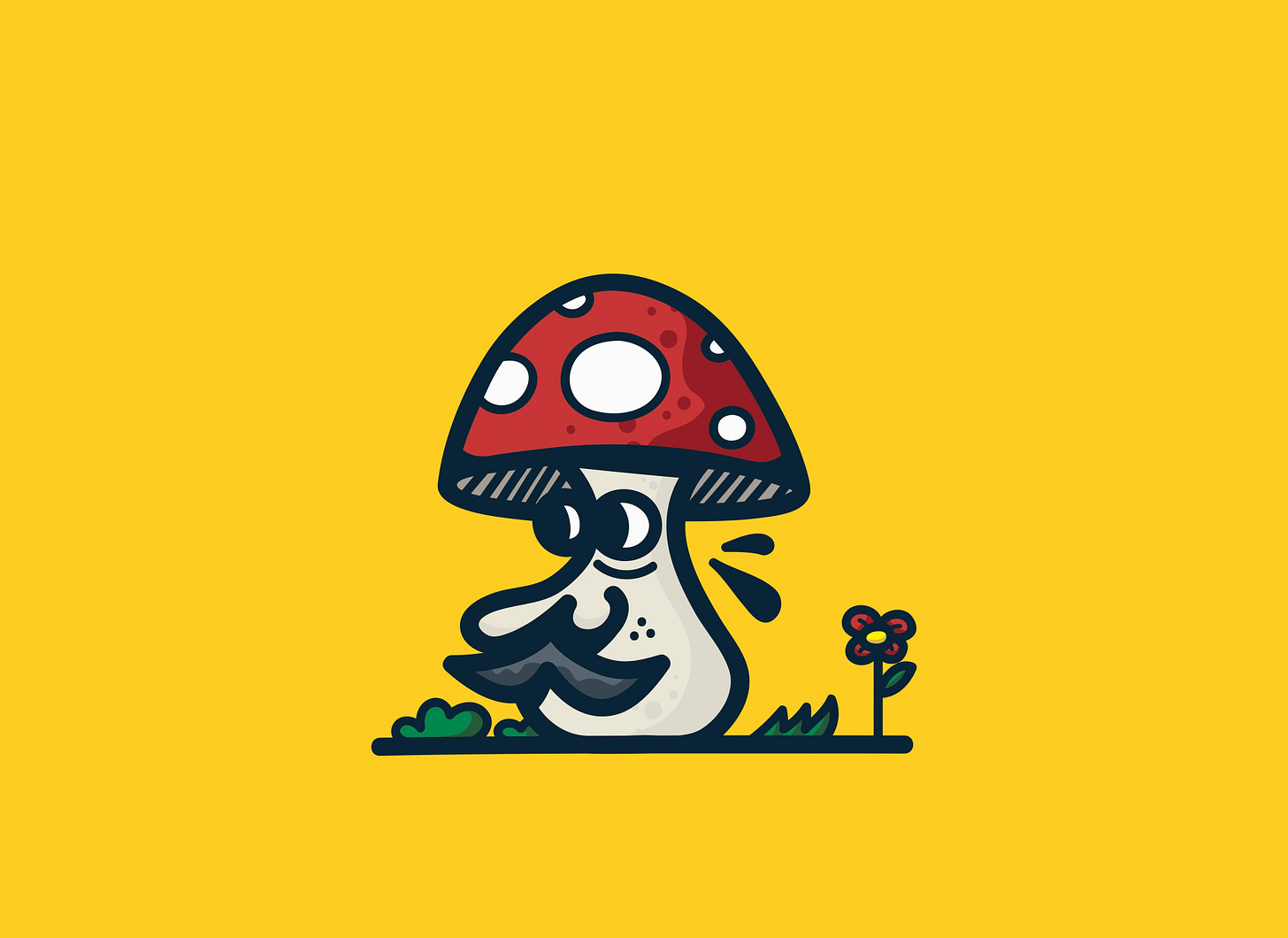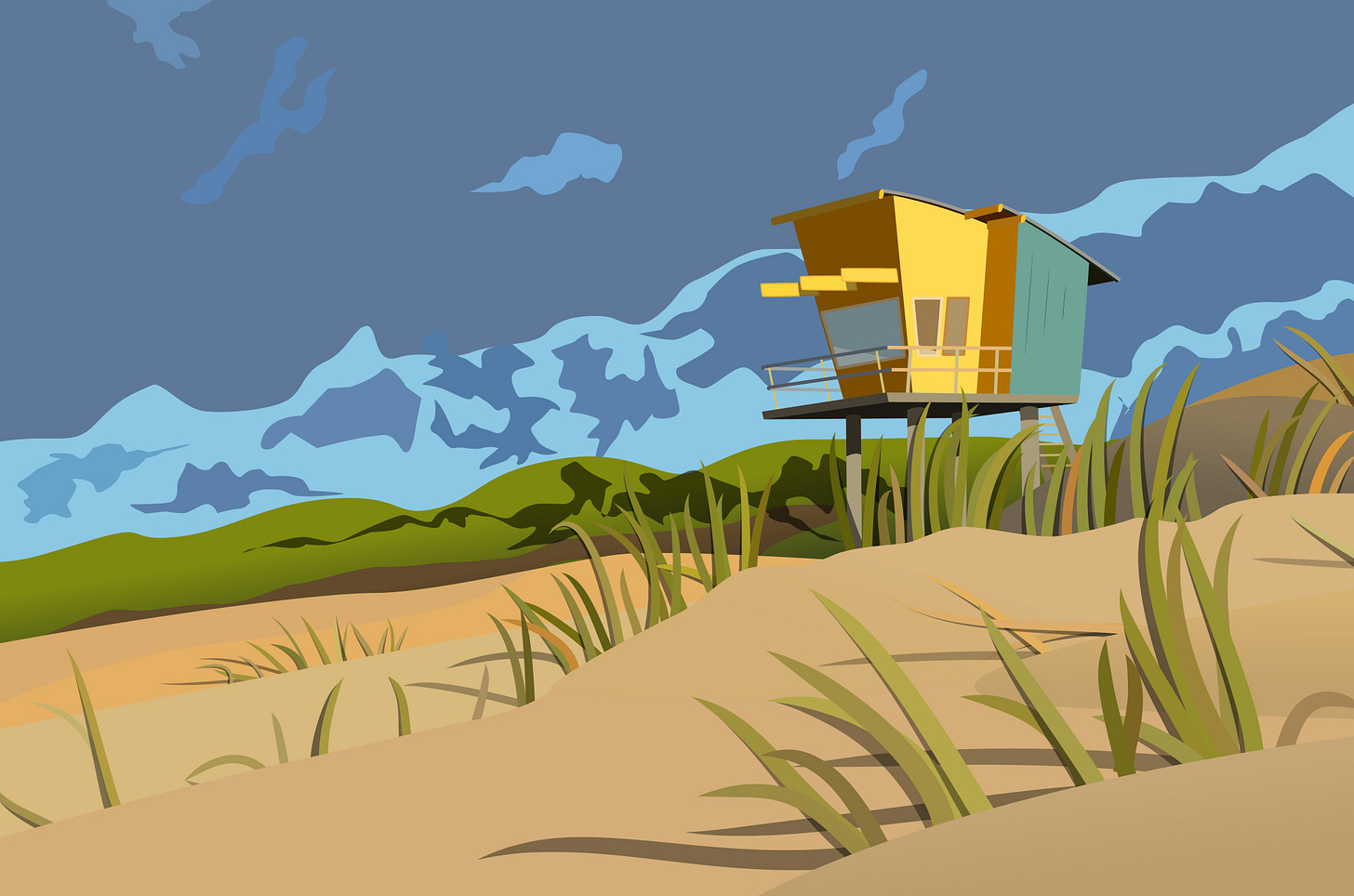how (not) to take meaningful breaks from your PhD
on meeting people, watching movies, and reading books
Dearest gentle reader,
It’s that time of the month when I provide an update on life and PhD. It’s been over a year since I started my PhD in IR in Brisbane, Australia. But, after a year of stay in Brisbane, and towards the end of March, I moved to India to visit family and friends.
My family lives in a remote village in the northern part of the Karnataka state. It is a fully-fledged farming household. Early morning, one wakes up to irrigate the land, feed the cattle, milk the buffaloes, and stroll through narrow alleys between crops. If you were to ask me, I am not good at farming, and do not desire it either. But that’s what our household looks like.
Waking up to the rooster crowing, if you have already slept through the Azaan in the nearby village. And then, a bright red sun beams at you, which you can enjoy—but cannot capture on camera, no matter how expensive the phone you hold. And this goes on.
During my one-month stay at home, I ate a lot of home-cooked food, which I had missed for so long when I was in Brisbane. There were occasions when I visited relatives. Friends, briefly. And then, in between, I attended a wedding. All this, I did without really caring much about what my PhD fieldwork would look like.
Earlier, when I left Brisbane for my hometown in India, I thought this one month would be a break. But, I have not been meaningfully taking breaks. It happens with those who know nothing except how to read and write.
After a few days at home, I got excessively bored. I grabbed a book every once in a while. Try to read. Try to make notes in the margins. Try to write something. And then, back to reading. And so on.
For one, I re-read Pratap Bhanu Mehta’s Burden of Democracy, which interrogates the progress and pitfalls of Indian democracy since independence.
Pratap Bhanu Mehta’s 2003 book The Burden of Democracy is a short but extraordinarily evocative essay on the Indian democracy in the making. In these 120-odd pages, Mehta engages with two pertinent questions on democracy: Is exercising political choice meaningful or an illusion? And if it is meaningful, has the exercise led to creating a better social world?
Mehta argues: “Our choices have come to bear the imprint of the social inequality on the one hand and overbearing statism on the other. It argues that the texture of social relations in Indian society deforms its politics and that the organization of the state impedes it from serving us well.” (p. 7).
Do check out my review of this book if you want to get a sense of what Mehta has to say about Indian democracy.
Apart from this one book, I have not meaningfully read any other book. Even when I tried to read a few pages from Ram Guha’s Gandhi Before India to make sense of how Gandhi’s life was and what influenced Gandhi to lead his life the way he did, I could not successfully finish the book.
Perhaps, this is because, I thought to myself, if I am reading Gandhi, I might as well read those archival documents I have on Gandhi. So, I began reading up Harijan, a Gandhi-led newspaper that discussed issues of social and national importance. In the next few days of April, I read through a few editions of Gandhi’s Harijan. Made notes. Collected snippets. Scribbled a few pointers in my diary. And all this, I hope, I can use to tell good stories.
This part of the break has been meaningful. If you were a sceptic, you might as well say that it does not look like a break at once.
Now, some part which seems like a break. During this one month, I watched a lot of Malayalam movies. Here are some of them.
For instance, Manjummel Boys was a beautiful movie about friendship. The movie follows a group of eleven friends from Manjummel, Kerala, who embark on a trip to Kodaikanal. The trip soon takes a tragic turn when one of the friends, Subhash (Sreenath Bhasi), plunges into a hole in Guna Caves. Read the full review here.
Kishkindha Kaandam is a suspense thriller movie dealing with how past traumas come to shape present lives in their intricate personal relations.
The story begins with Ajayan (Asif Ali), who, a forest officer himself, brings his new wife, Aparna (Aparna Balamurali), herself an IT professional in Bengaluru, after a quiet registered marriage, to his ancestral home set close to a dense forest. And soon after, we are introduced to Ajayan’s father, Appu Pillai (Vijaya Raghavan), who is a reclusive, easily angered, and stern military man.
We learn soon after that Ajayan’s wife had died of a disease earlier, and their son had gone missing. And that their son’s mysterious disappearance could possibly be linked to Appu Pillai. Read the full review of Kishkindha Kaandam.
Sookshmadarshini, similarly, is another Malayalam suspense thriller which moves away from the conventional police procedural, which begins with police chasing a crime or a criminal. In this one, it is your everyday neighbours. It is refreshingly new.
The story begins with Manuel (Basil Joseph) returning to his ancestral home with his ailing mother, in the neighbourhood where Priyadarshini (Nazriya Nazim) stays with her husband and daughter. Priya is an inquisitive neighbour whose curiosity leads to a web of mystery.
They say curiosity is the mother of invention, but in this movie, this adage takes a new form: curiosity is the mother of interrogation. Read here for the full review of Sookshmadarshini.
Besides these, I also watch Santosh, a Hindi-language police procedural drama that deals with how caste, crime, and corruption come to interact and sustain social inequalities. Here is the review of Santosh.

Well, that’s about movie-watching.
Movie-watching has been a catharsis from PhD. It gives you a break from thinking. These breaks, when taken in moderation, tend to reenergise your thinking for some of us. I am not sure if this really helps everyone. But, for someone like me, movies are cathartic.
However, I have been thinking of changing this. I want to replace movies with something like books. Fiction, perhaps. I should read more about how to write well. Those books, perhaps. I am not sure yet.
Now that my time at home is over, and I am back in Delhi to start my PhD fieldwork, I will be once again back with a routine. Waking up early. Eating my overnight oats. And doing some exercises before that. And then, the library. This will be a change that will take some time for me to get used to. I hope that these next few months will be productive. I hope that I am able to collect the data for my research. And that I am able to tell a good story by the end of my PhD.
But, for now, I leave you to whatever you, dearest gentle reader, are up to. And I will make it a point to pick up a book and read it the following week. For now, I take leave of you, and adios until we meet again.
Warmest greetings,
Adarsh



